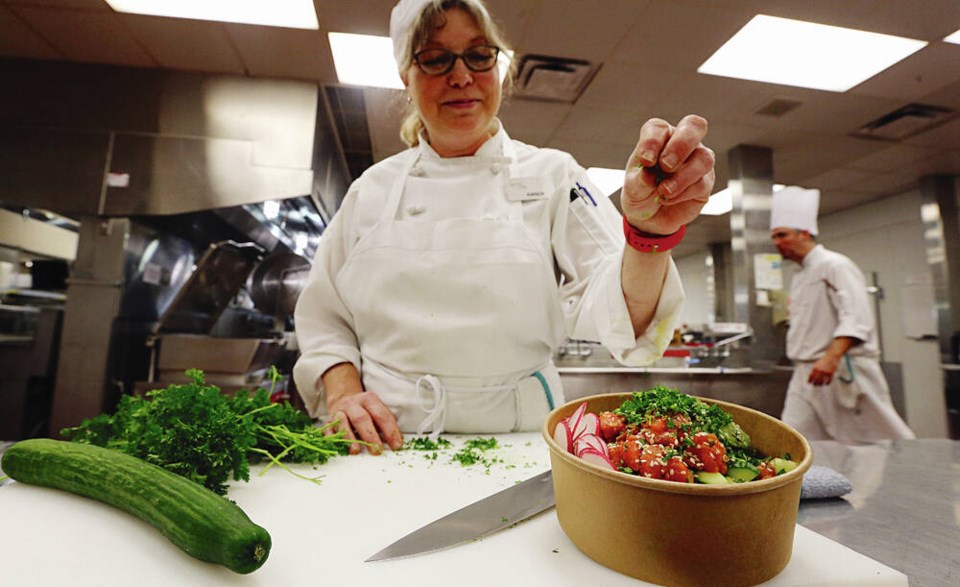Up to 18 chefs-to-be in Greater Victoria will receive free professional cook training as a result of a joint initiative of Camosun College, a B.C. chef association and the government, in response to growing demand for professional cooks.
The underemployed, new immigrants and those looking for a career change are eligible to participate in the $200,000 initiative, which includes free tuition and supports for Camosun College’s eight-month intensive Professional Cook 1 program starting in November.
David Lang, Camosun’s chair of culinary arts department, said the one-time funding will mean a 20 per cent increase in the number of students in the program, which typically sees 30 to 50 students each year.
The pandemic exacerbated challenges in the food industry, he said, but there are now more opportunities for aspiring chefs than ever before.
“There is a real space for positivity and change in the industry right now, and that includes better wages, more equitable workplaces, non-monetary benefits [such as] medical, dental, gym memberships, lots of different great opportunities,” he said.
Shawna Gardham, executive director of Chefs’ Table Society of B.C., which secured funding from the provincial government for the program, said the goal is to support those who might have a harder time breaking into the industry, such as immigrants, Indigenous peoples and women.
To further reduce barriers, she said, the Foodsafe certification process is built into the course rather than being treated as a prerequisite. Students will also have access to a bus pass, a uniform, and other supports provided by the college and the chefs association.
“To have your tuition paid for your level one [certification], that’s pretty spectacular,” she said.
Other perks include personalized knife kits, professional headshots, help with resumé writing, and the chance to chat with a variety of professionals who will visit during the course.
Amber Hockin is two months from finishing her professional cook level one program and spent part of Friday filleting salmon at the Camosun College cafeteria that doubles as a training ground for aspiring chefs.
Over Thanksgiving weekend, she will be thinking of scotch eggs and tostada — her next in-class assignments.
For Hockin, who previously worked as deputy chief of staff for John Horgan when he was premier, the course began as a way to stay busy during her husband’s cancer treatment.
She now hopes to cook for seniors who want to stay in their homes but might not have the ability to prepare all their meals themselves. “I fully intend to get my Red Seal certificate,” she said, adding the process will likely take her three and a half years.
The program is great but challenging, even if you love cooking at home, she said. “You learn all of the traditional cooking methods, the French cooking methods, but then you also get to layer on a whole bunch of different cuisines from around the world. You learn to cook differently in a professional industrial kitchen, as opposed to something you would do at home.”
The recipes are intricate and multi-step, and in the final exam you’re tasked with making four or five dishes at once, she said.
This is the third program that the Chefs’ Table Society B.C. has been involved in through B.C.’s Community Workforce Response Grant program, whose funding comes from the $685-million Canada-B.C. Workforce Development Agreement signed in 2018.
The programs are intended to help address labour shortages.
The food industry is a growing sector in Victoria. According to Statistics Canada, the number of jobs in Greater Victoria in the accommodation and food services sector grew to 19,100 in September, up from 14,200 in September 2022.
People interested in the program grant can email [email protected] or phone 250-370-3778.
>>> To comment on this article, write a letter to the editor: [email protected]



